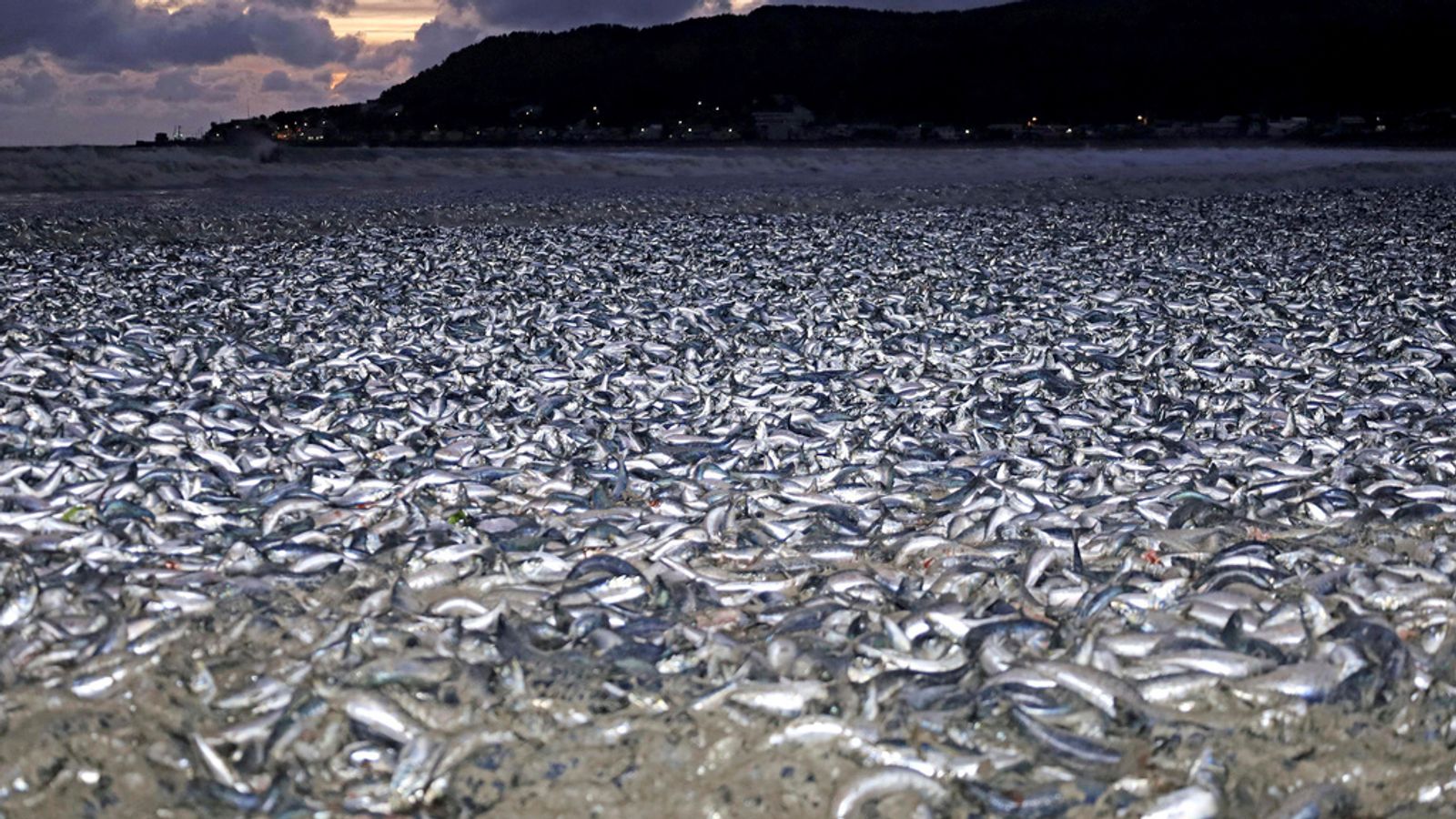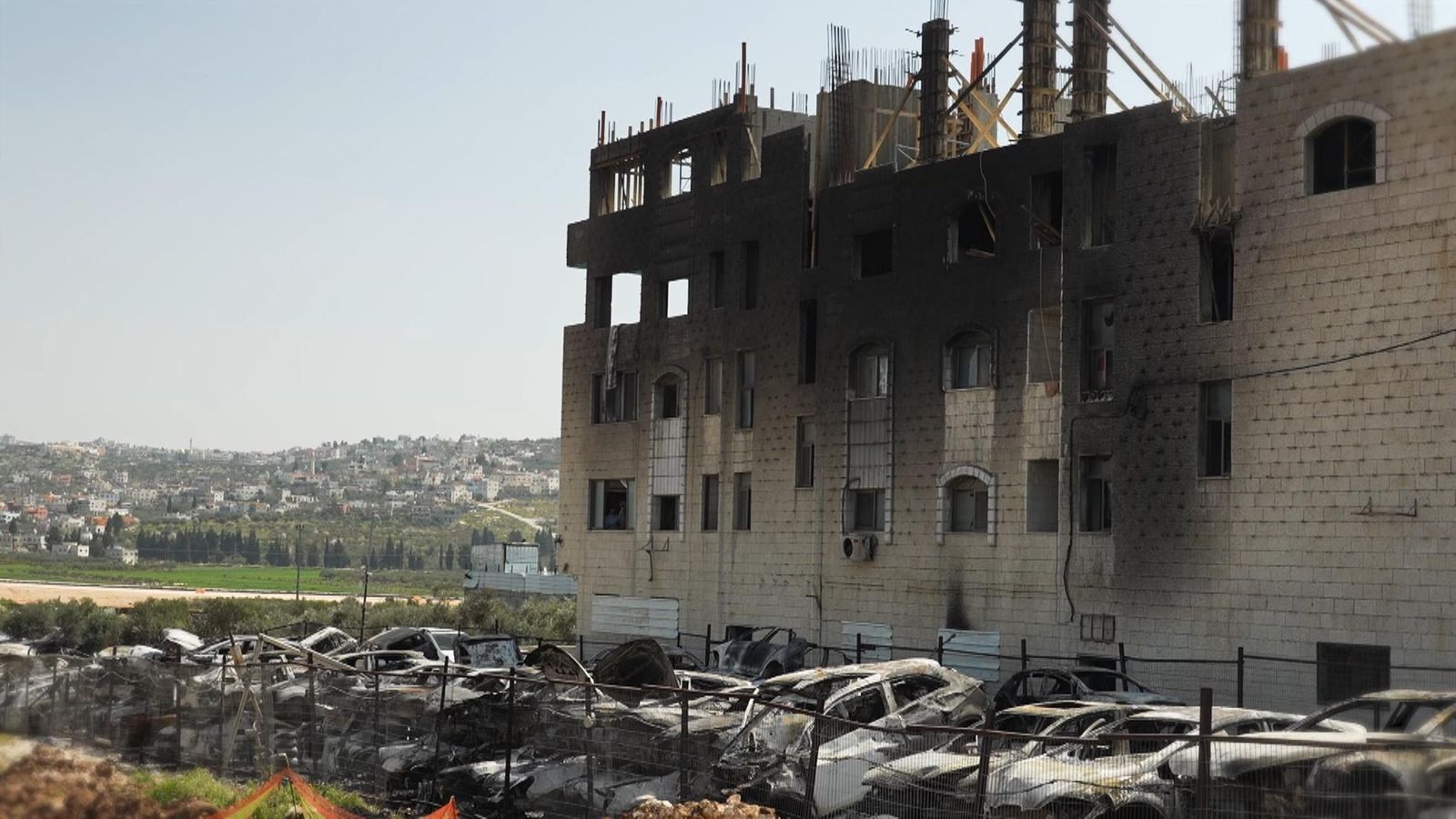Ukraine has brought in emergency measures and told its citizens in Russia to flee the country as fears of a large-scale invasion by President Vladimir Putin’s troops mount.
In further ominous signs, Moscow began evacuating its Kyiv embassy and the leaders of two Russian-backed separatist-controlled regions in eastern Ukraine asked Mr Putin for military help in repelling “aggression” from the Ukrainian army.
The latter could be particularly significant as the Russian president this week recognised the independence of Donetsk and Luhansk and the latest move may be a pretext for Russian forces potentially clashing with Ukrainian government troops.
Military convoys ‘seen moving towards Donetsk’ from Russia – follow live updates
Ukraine’s month-long nationwide state of emergency, which has begun after it was approved by parliament on Wednesday, allows authorities to restrict movement, block rallies and ban political parties and organisations “in the interests” of national security and public order.
It also bans “information materials” that “could destabilise” the country, and gives the government the right to impose curfews and carry out checks.
The move came as US defence officials said Mr Putin’s forces are “as ready as they can be” to mount what America believes could be a full-scale invasion of Ukraine, with about 80% in attack positions.
Key developments:
• European Union sanctions against Russia have come into effect
• US imposing sanctions on company in charge of building Nord Stream 2 gas pipeline
• Ukrainian government and banking websites have been knocked offline
• White House says Biden-Putin summit ‘not in the plans’ anymore
• UN secretary general warns against the risks of an expanded conflict
“He [Putin] is as ready as he can be. We’ve been saying any day now and it’s certainly possible that today is that day,” a US official said.
On Tuesday, Russian legislators gave Mr Putin permission to use armed forces abroad.
Convoys of military equipment including nine tanks have moved towards Donetsk from the direction of the Russian border, according to a witness with the Reuters news agency.
Read more: Why does Putin want to invade Donetsk and Luhansk?
Some Western officials have accused the Kremlin of an “invasion” by ordering troops into Donetsk and Luhansk, where separatists control around a third of the territory.
State of emergency
In Ukraine, the state of emergency restricts the freedom of movement of conscripted reservists, curbs the media and imposes personal document checks, according to a draft text.
The restrictions will last for 30 days and could be extended for another 30 days.
Army reservists aged 18-60 are also being conscripted following a decree by Ukrainian President Volodymyr Zelenskyy.
Civilians will be given the right to carry firearms and defend themselves after the country’s parliament voted in favour of the measure.
‘Hit more. Hit hard. Hit now’
At a UN General Assembly meeting, Ukraine urged nations to stop Russia’s “aggressive plans” and called for harsher sanctions, a day after the UK, the US and the EU announced a first wave of measures targeting Russia.
“No one will be able to sit out this crisis if President Putin decides that he can move forward,” Ukraine’s foreign minister Dmytro Kuleba said.
He urged Western leaders not to wait, saying: “We are at a critical juncture of world history, and our actions today define it for years to come.”
“We call on partners to impose more sanctions on Russia now,” he tweeted.
“Now the pressure needs to step up to stop Putin. Hit his economy and cronies. Hit more. Hit hard. Hit now.”
Read more: What will happen if Vladimir Putin chooses all-out war?
Also, the US is bolstering sanctions to include the company behind Russia’s Nord Stream 2 gas pipeline.
The Nord Stream 2 AG company and its executives will be targeted. The project, which was designed to double the gas flow capacity from Russia to Germany, has now been halted by Berlin.
Putin: National interest comes first
Mr Putin has laid out three conditions to end the crisis. He wants international recognition of Crimea as part of Russia, an end to Ukraine’s NATO membership bid and a halt to weapons shipments to the country.
On Wednesday, he said Russia was still open to diplomacy but would put its national security interests first.
He said the country would continue to bolster its military amid a “difficult international situation”.
In a video statement released to commemorate the annual Defender of the Fatherland Day, Mr Putin appeared to indirectly address the situation in Ukraine despite making no specific mention of the country.
“Our country is always open to a direct and honest dialogue and ready to search for diplomatic solutions to the most complicated issues,” Mr Putin said.
“But I want to repeat that Russia’s interests and the security of our people are unconditional. So, we will continue to strengthen and modernise our army and navy.”
Around 150,000 Russian troops are amassed near Ukraine’s borders amid fears of a large-scale invasion into the country.
The Kremlin has denied it is planning an invasion and claims its forces are there for military drills.
Follow the Daily podcast on Apple Podcasts, Google Podcasts, Spotify, Spreaker
Russia’s security service said it has foiled “an act of terrorism” in Crimea, the Ukrainian territory Russia annexed in 2014, according to the state-owned RIA news agency.
Six Russian citizens were arrested who were allegedly supporters of a Ukrainian extremist group, the news outlet said.




